Publications
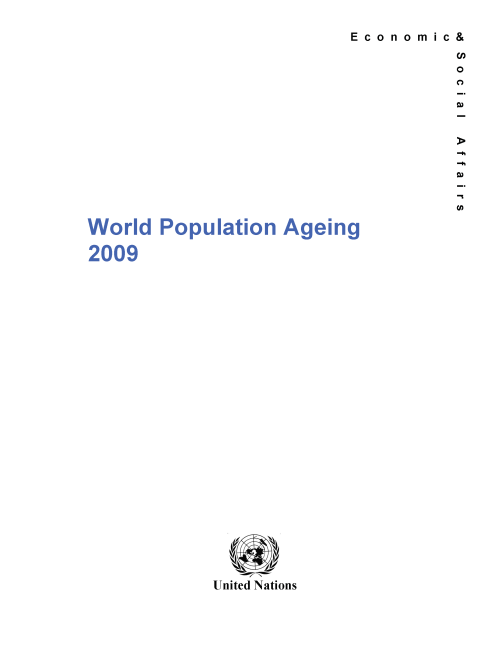
The World Population Ageing 2009 report, by DESA's Population Division, which updates the 2007 edition, provides a description of global trends in population ageing and includes a series of indicators of the ageing process by development regions, major areas, regions and countries. This new edition includes new features on ageing in rural and urban areas, the coverage of pension systems and the impact of the 2007-2008 financial crisis on pension systems.
The present report recognizes that further progress has been made towards fulfilling the promises embodied in Millennium Development Goal 8 (MDG 8). At the same time, it identifies important setbacks, most of which have arisen from the current state of the world economy which is suffering its severest downturn since the Great Depression of the 1930s. Some donor countries are cutting their budgets for official development assistance (ODA); several developed and developing countries have resorted to protectionist measures; resurging debt distress is increasing the need for further and broader debt relief; the costs of essential medicines are on the rise; and the technological divide…
The Millennium Development Goals report presents a yearly assessment of global progress towards achieving the MDGs. It is prepared by the Statistics Division at DESA on the basis of input provided by the members of the Inter-agency and Expert Group on MDG Indicators. Less than six years away from the 2015 deadline to achieve the MDGs, this report warns that despite many successes, overall progress has been...
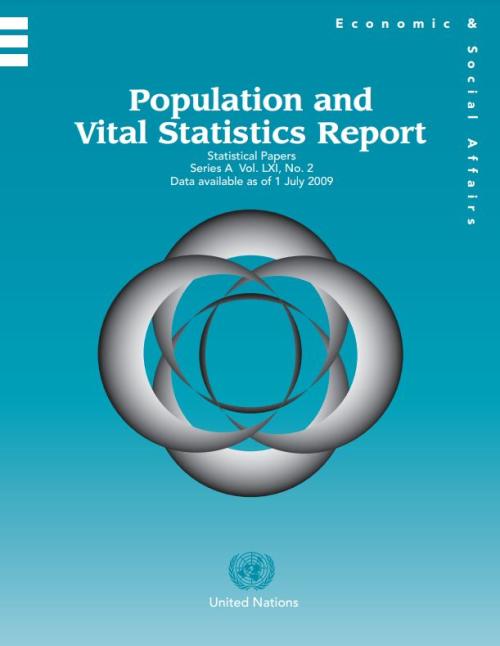
This issue of the Population and Vital Statistics Report presents data for countries or areas on population size (total, male, and female) from the latest available census, estimated total population size for 2006 or 2007 (the later available year), and the number and rate of vital events (live births, deaths, and infant deaths) for the latest available year within the past 15 years (1993-2007). These data are presented as reported by national statistical authorities.
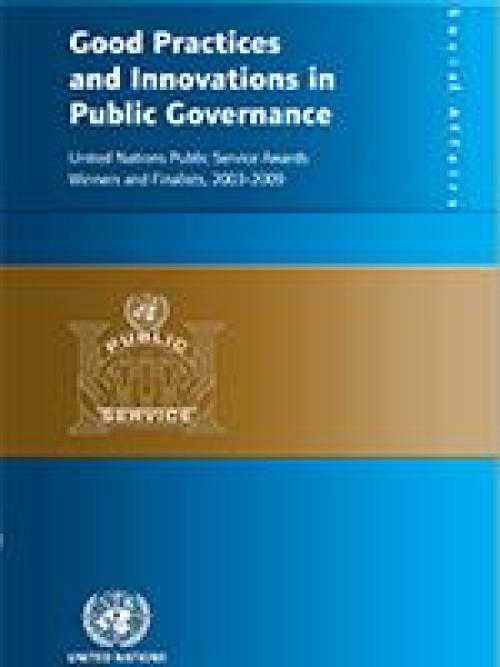
This publication provides an overview of 85 successful innovations in governance and public administration from 40 countries that received the United Nations Public Service Awards, which is the most prestigious international recognition of excellence in public service. The purpose of this book is to disseminate, through descriptive case studies, information about innovative practices by looking at the problem that led to an innovation; the solution that was designed and implemented to respond to the specific challenge; the actors and steps involved in the innovation process, and lessons learned. Learning more about how public institutions from around the world have solved difficult…
This report presents an assessment of progress, based on data available as of June 2008 on all official Millennium Development Goals (MDG) indicators, including the new ones introduced. The aggregate figures in the report provide an overall assessment of regional progress under the eight goals and are a convenient way to track advances over time.
The MDG Gap Task Force has assessed the global commitments contained in the framework of the Millennium Development Goals (MDGs) ratified by Governments as the various international events that followed the Millennium Summit. The United Nations Millennium Declaration emphasized that strengthened global partnerships for development were needed to provide the enabling environment for accelerating progress in reducing poverty, improving health and education, establishing gender equality and ensuring the protection of the environment as defined in the MDGs.
The main message of the present report is that while there has been progress on several counts, important gaps remain in…
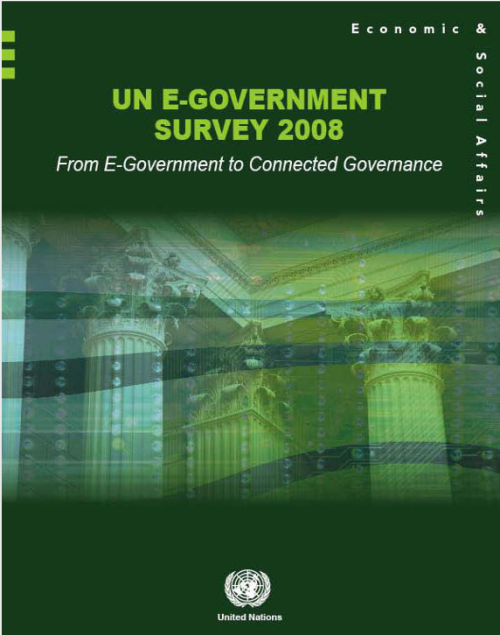
The UN E-Government Survey 2008: From E-Government to Connected Governance assesses the E-Government Development of the 192 Member States of the UN according to a quantitative composite index of e-readiness based on website assessment, telecommunication infrastructure, and human resource endowment. ICTs can help reinvent government in such a way that existing institutional arrangements can be restructured and new innovative arrangements can flourish, paving the way for a transformed government.
The focus of the report this year, in Part II, is e-government initiatives directed at improving operational efficiency through the integration of back-office functions. Whilst such…
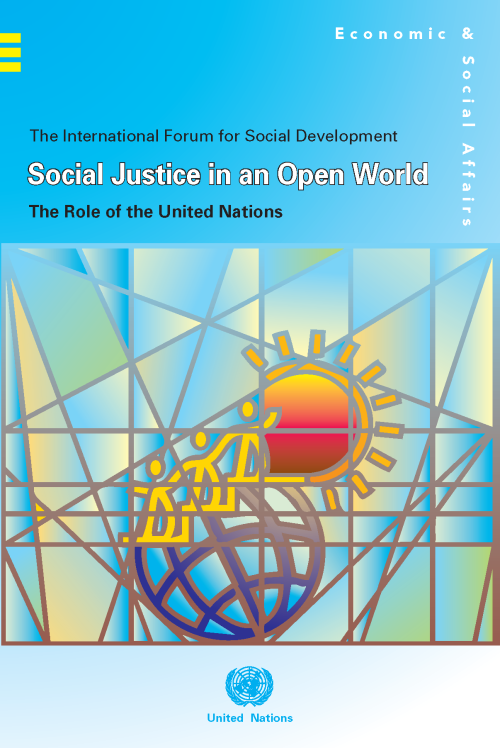
This publication provides an overview of the discussions that took place during the International Forum for Social Development, a three-year project undertaken by DESA for the purpose of promoting international cooperation for social development and supporting developing countries and social groups not benefiting from globalization. The outcomes of the meetings that took place during the Forum were also presented orally at the annual sessions of the Commission for Social Development.
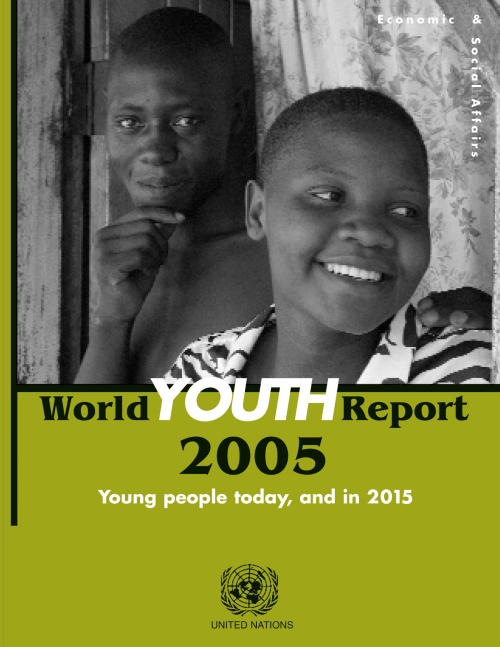
The year 2005 marks ten years since the General Assembly adopted the World Programme of Action for Youth in 1995. This report, an official report to the General Assembly, called for a renewed committment to the goals of the World Programme of Action, since over 200 million youth were living in poverty, 130 million youth were illiterate, 88 million were unemployed and 10 million young people were living with HIV/AIDS.
In the World Youth Report 2005, it is argued that too often, youth policy is driven by negative stereotypes of young people, including delinquency, drug abuse and violence. What seems to be forgotten is that young people are a positive force for development, peace,…
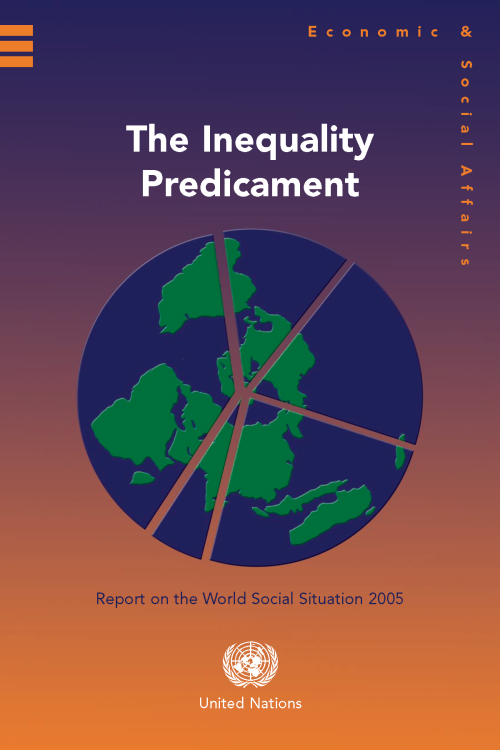
The 2005 Report on the World Social Situation: The Inequality Predicament was launched on August 25. The Report sounds alarm over persistent and deepening inequality worldwide, focusing on the chasm between the formal and informal economies, the widening gap between skilled and unskilled workers, the growing disparities in health, education and opportunities for social, economic and political participation.
The Report has been introduced by Mr. Jose Antonio Ocampo, Under-Secretary-General and Mr. Johan Schölvinck, Director, Division for Social Policy and Development, DESA on Thursday August 25, 2005.
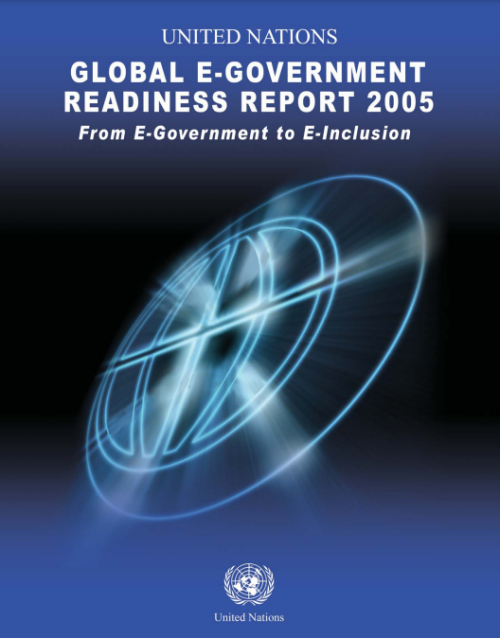
The spread of information technologies to a select group of people in the world is worsening disparities between the e-haves and the e-have-nots. There is a danger that unequal diffusion of technology, far from fomenting cohesion by providing opportunity, will result in reinforcing the traditional patterns of economic and social inequalities which will lead to a weakening of social bonds and cultural organization.
Exploring the interlinkages between e-government and human development, Part II of the UN Global E-Government Development Report 2005 points to the need to place development thinking within what it terms as the Socially Inclusive…
 Welcome to the United Nations
Welcome to the United Nations